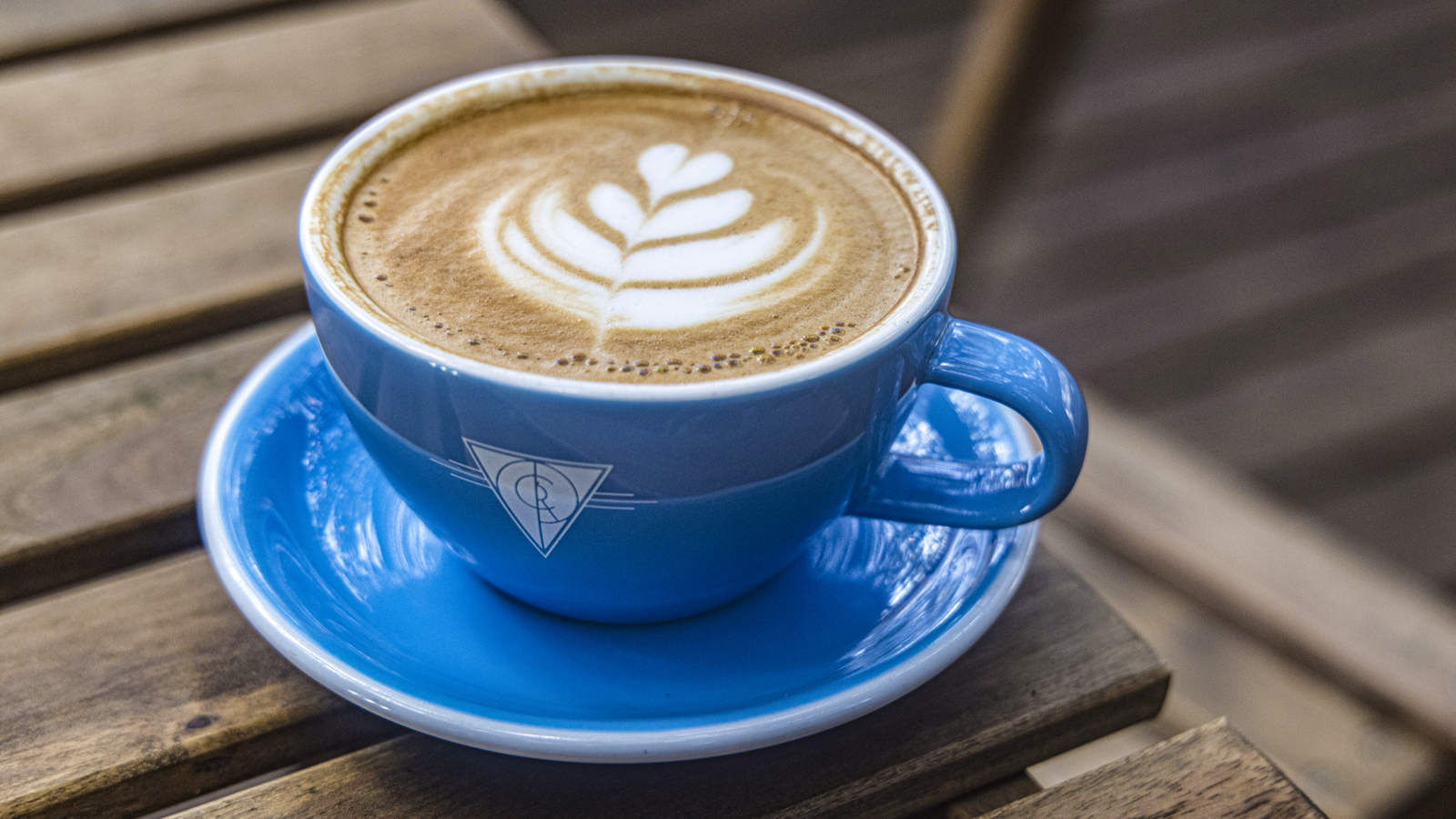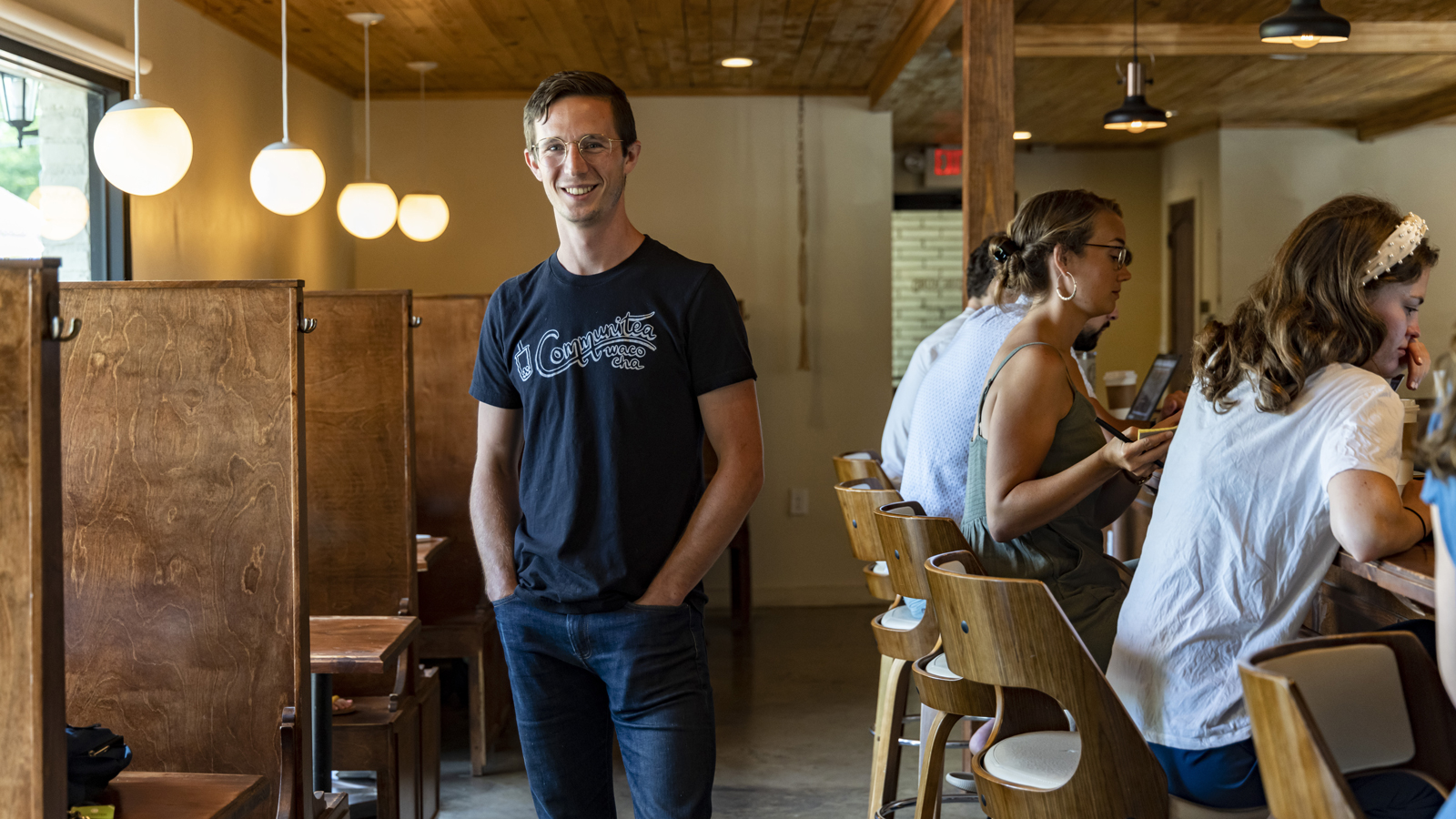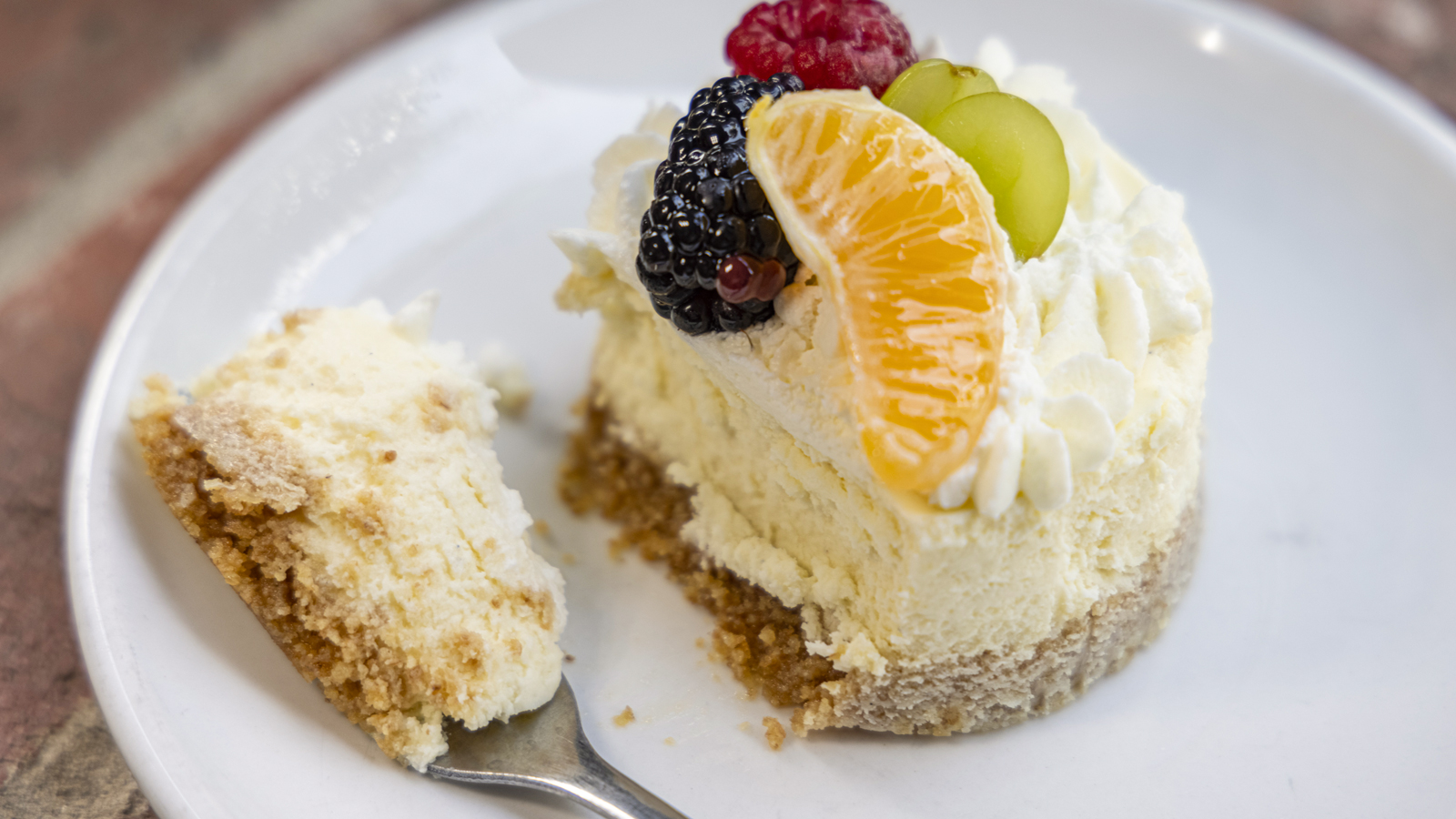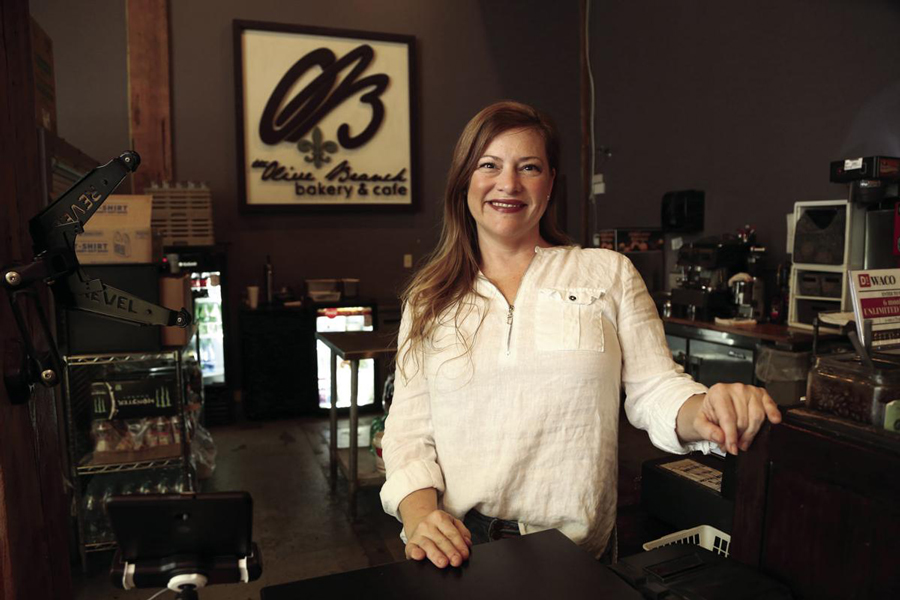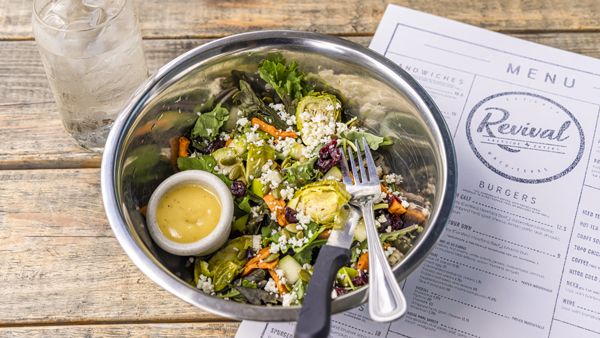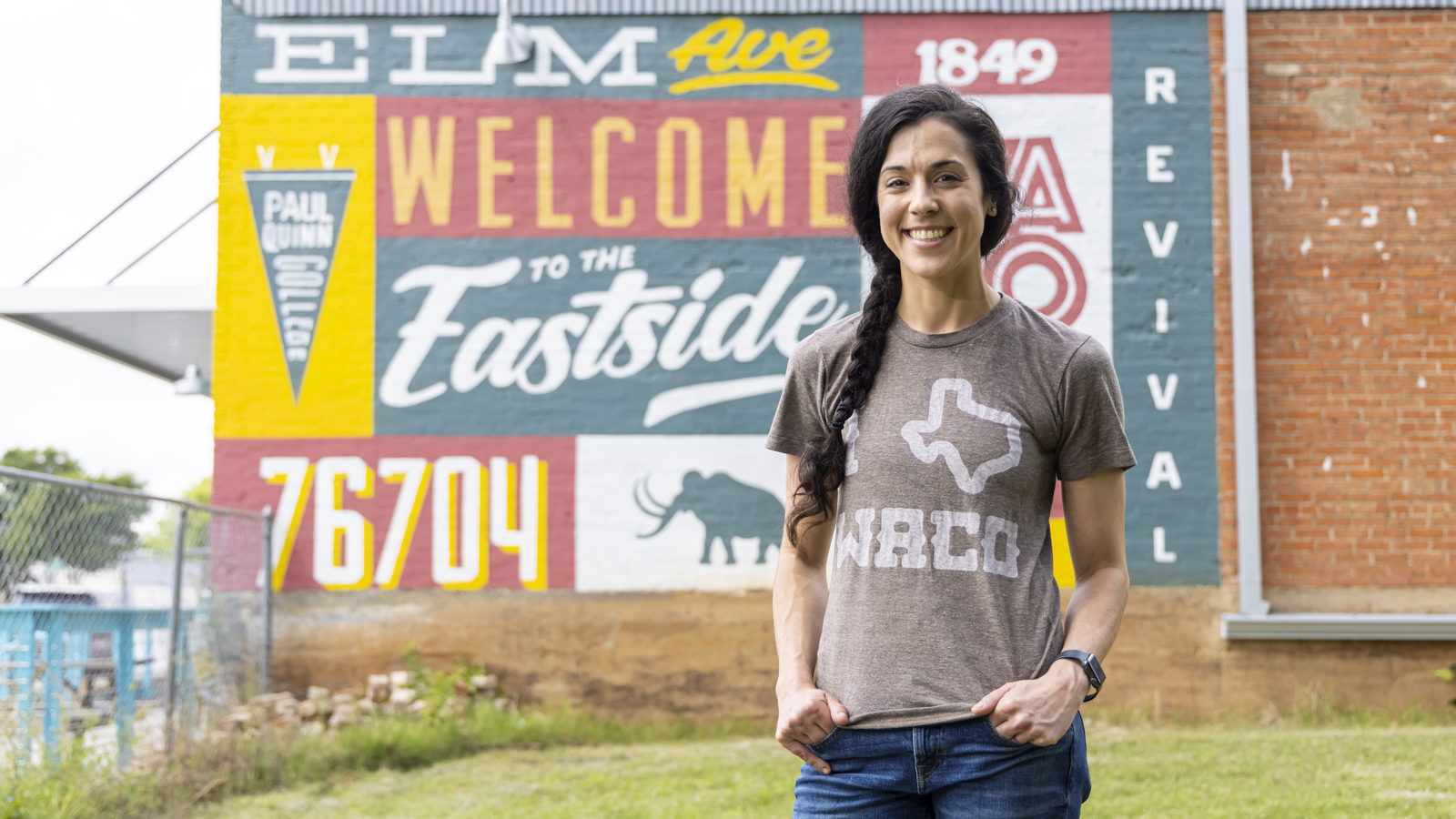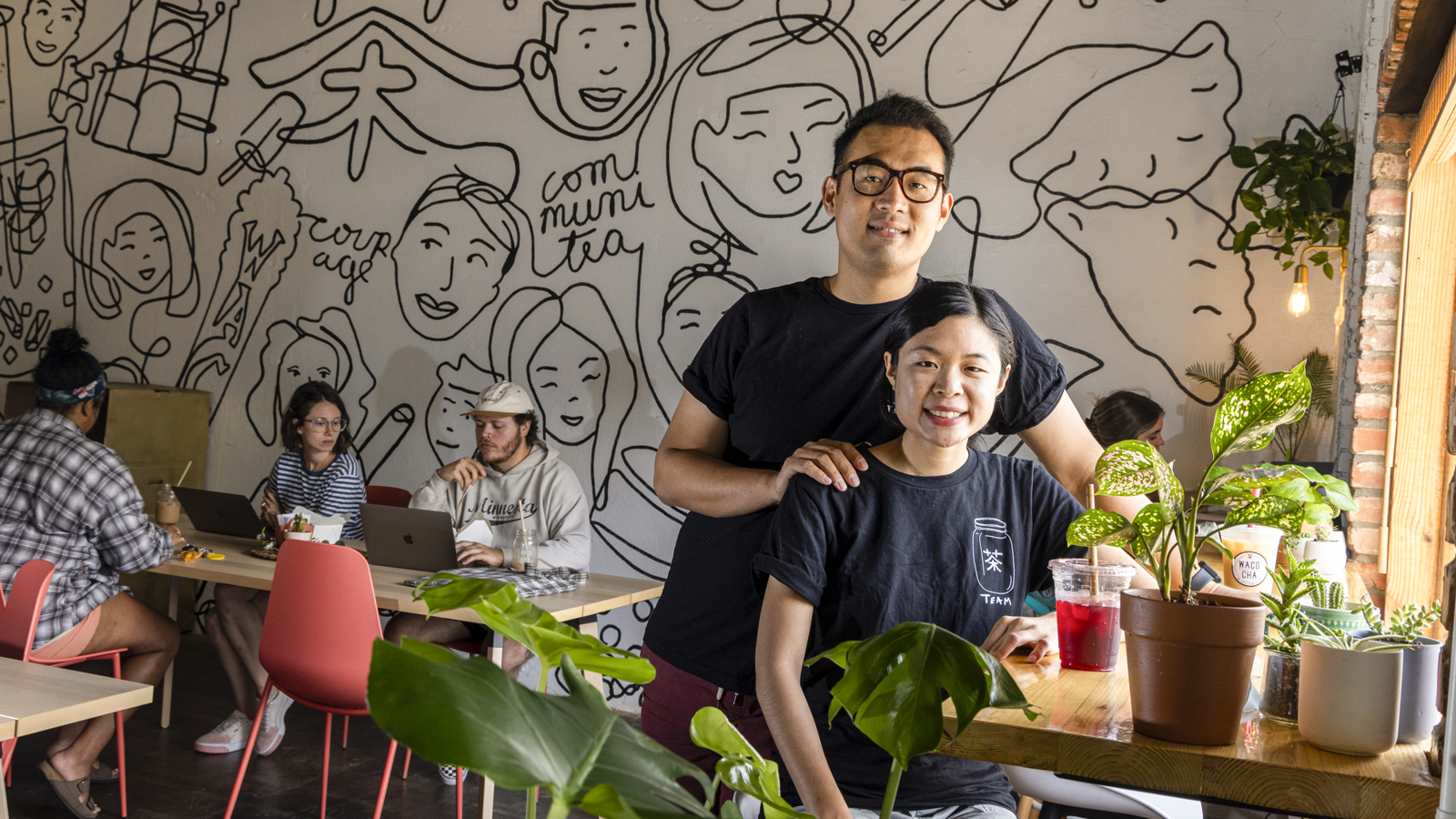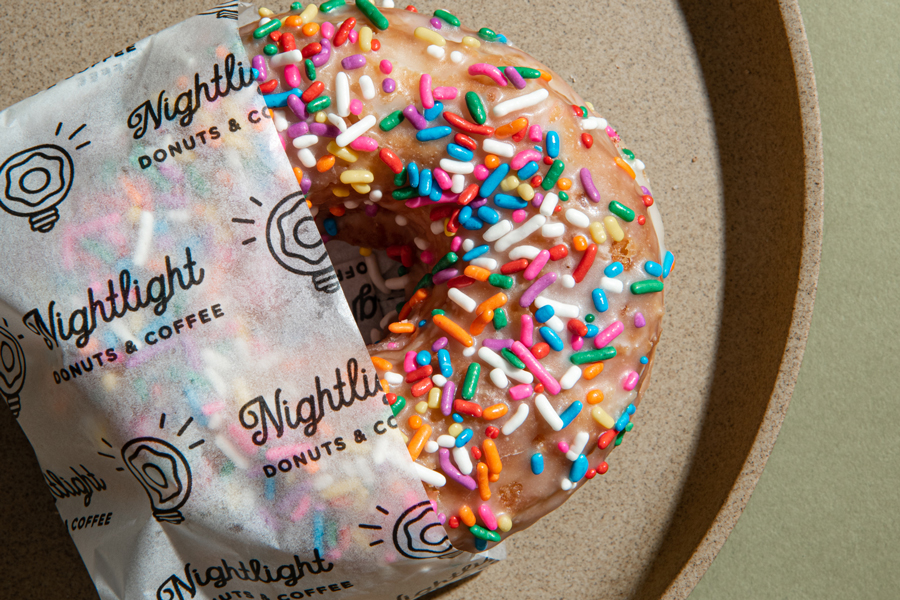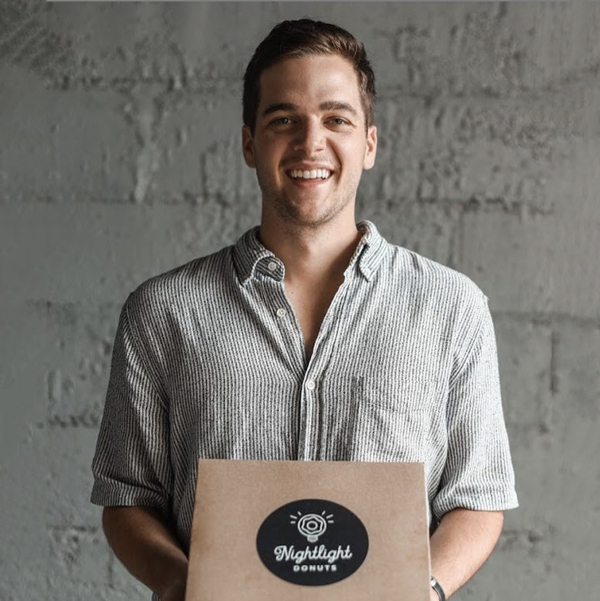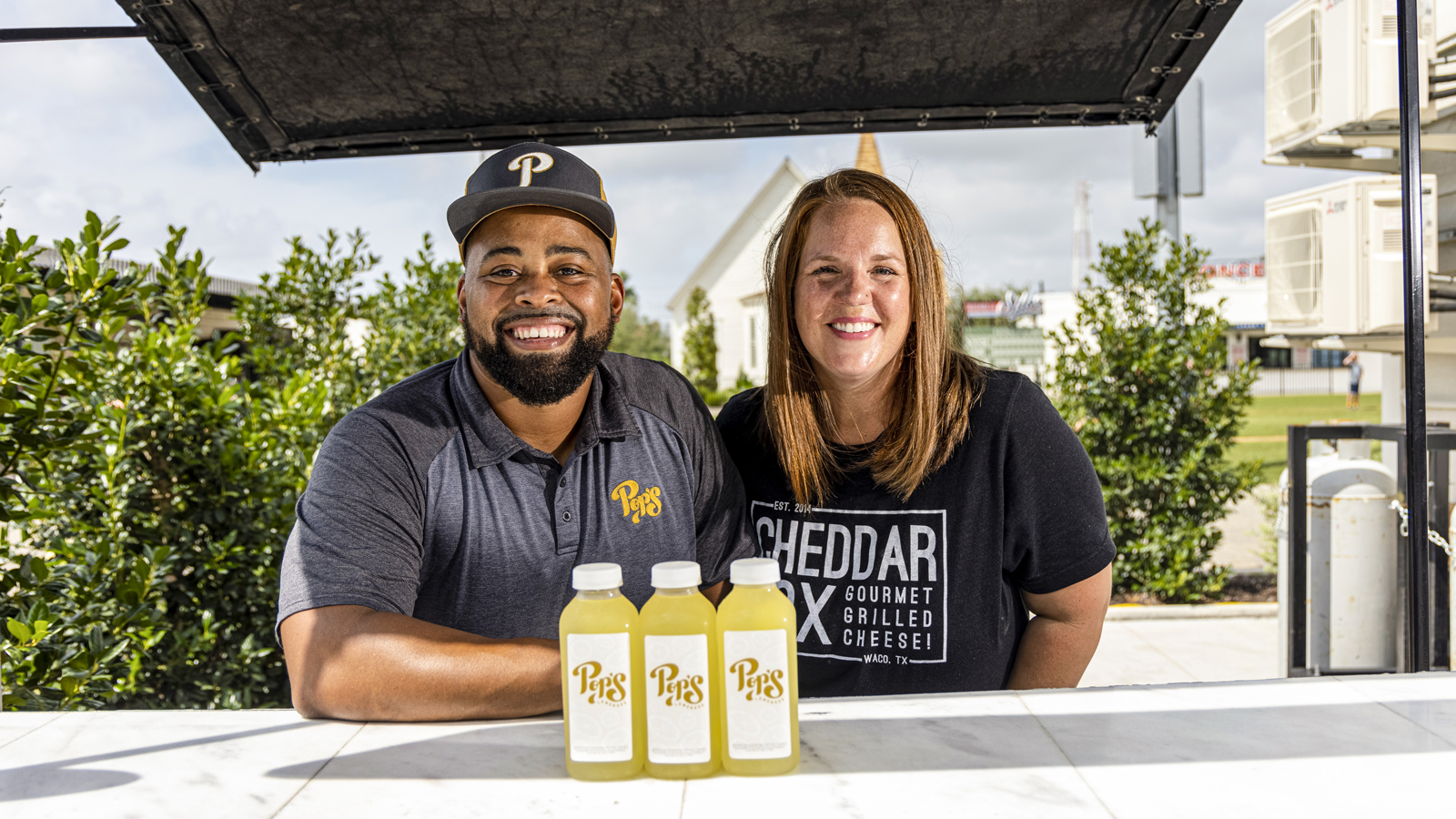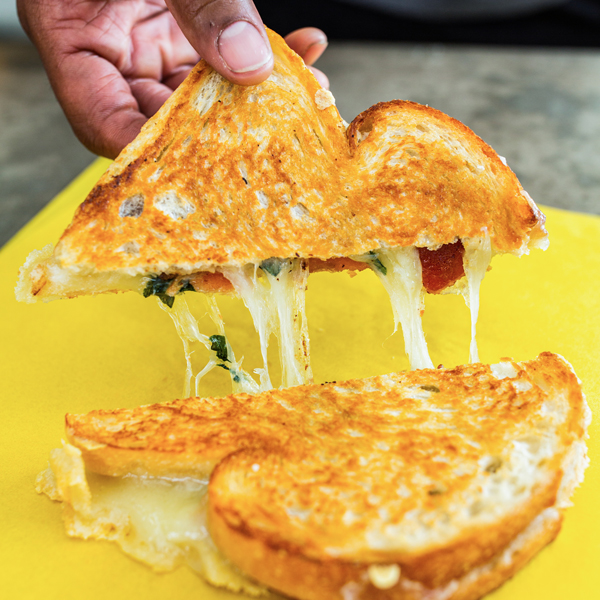Fostering a Foodie Movement
Baylor alumni influence Waco's flourishing cuisine scene
Every Baylor alum has a different version of the Waco dining scene in their memories, complete with treasured times and cherished places that beckon them back when mentioned. It is mostly those memories that have persisted as the restaurants, eateries and hangouts around Waco have come and gone.
For decades, Waco was the last stop for failing franchises or the land of unending chains. It was home to one of the last Steak and Ale franchises and held on to Pancho’s Mexican Buffet until they lowered nearly all their flags. Locally, businesses made strides throughout the years; however, to the casual observer, Waco’s food offerings had been surrendered to the homogeneity that comes with being smaller than Houston, Dallas, San Antonio and Austin.
Few people think of Waco’s culinary scene that way today. While Waco’s growth deserves a heaping helping of credit for that shift, Baylor Alumni are making significant contributions to putting the Waco food scene on the culinary map.
Early Risers
It is difficult to pinpoint the genesis of Waco’s culinary transformation, but — like so many of us — it required caffeine to get going.
John David Beard, B.B.A. ’14, started as an accounting major at Baylor before switching to and completing his degree in management. In taking a beat to consider his post-graduation options, Beard put a little more caffeine into his daily regimen as a barista at Common Grounds. A conversation with fellow Common Grounds barista Dylan Washington, B.A. ’14, led to a fateful decision with astonishing results.
“I heard that Dylan wanted to roast coffee and talked with him about it,” Beard says. “We got pretty bored of being baristas at Common Grounds, and we went from there.”
“As Waco continues to grow, there will be a spot that's your favorite — your favorite latte, tea, whatever... and it doesn't all have to be at the same place. ”John David Beard, B.B.A. ’14 // Pinewood
Beard and Washington began roasting coffee in McGregor, Texas, and from there opened Pinewood Coffee Bar, originally located in the front half of Waco’s Alpha Omega restaurant on Franklin Avenue. Soon, they moved into a nondescript renovated office building on Austin Avenue. What followed was a reputation as coffee purists.
A variety of flavored syrups and would-be milkshakes are hard to find at Pinewood, which instead offers a single-origin, low-acidity, fair-trade cup of joe that is smooth enough to be consumed with no frills. Additionally, their Rosetta work (the pretty art atop lattes) is unsurpassed in Central Texas. Food & Wine magazine listed Pinewood as one of the nation’s best coffee shops.
Mutual Branch
Pinewood is not the only business that can trace its roots to a cozy coffee house adjacent to the Baylor campus. Leah Stewart, B.B.A. ’98, worked with Common Grounds founder Jill Mashburn Barrett, B.A. ’95, before opening The Olive Branch in 2003.
The Olive Branch brought brunch and light lunches to a then-underdeveloped downtown district, challenging the sea-of-sameness that defined Waco dining. The restaurant has remained relevant amidst the city’s burgeoning cultural landscape.
Stewart says adaptability is a virtue of the business. Paired with menu staples such as their incomparable chicken salad sandwich, omelets made with fresh ingredients, and house-baked pastries, it is a recipe for sustained success. Nonetheless, few menu items haven’t been overhauled in the restaurant’s history.
“One of the things that's most special to me is getting to be part of the lives of people in the community.”Leah Stewart, B.B.A. ’98 // THE OLIVE BRANCH
“Our menu looks a hundred percent different than it did from the first day that I opened,” Stewart says. “We’re doing everything differently — our events, our food, our sauces, and we’ve continued to evolve. If table service isn’t working, then we’ll get a counter service. If counter service isn’t working, we’ll do a hybrid. If being open seven days a week isn’t working, we’ll be open five.”
Flexibility aside, getting to be a part of people’s lives is far more valuable to Stewart than mere business survival. She has seen people get engaged in The Olive Branch and then ask her to cater their wedding and their baby’s first birthday.
“That is a really special part of being a small business in the community,” Stewart says. “Not just having regulars but being their (special) place.”
Eastside Eatery
Stewart’s sentiment — that there is a profound sense of connectedness within the Waco community — is not lost on others. It has undoubtedly inspired a few to chase similar dreams after earning a Baylor degree.
Cross the Brazos River near downtown and head a few blocks north and those dreams take shape in the form of Revival Eastside Eatery. Founder Danielle Young, M.S. ’13, Ph.D. ’16, established the idyllic after graduating and spending a spell in Austin. On a summer of 2017 visit to Waco, she identified a need in the food landscape.
“We were trying to find a place to eat dinner that was local,” she says. “My husband wanted a burger, and I wanted a salad that didn’t have iceberg lettuce. That’s not in Waco; at least, it wasn’t in 2017.”
Young and her husband Travis settled for a chain restaurant that she says was neither healthy nor local. It inspired her to wonder.
“At that time, I said, ‘How hard could it be?’” she says. “I have eaten those words since then.”
The difficulties of running a restaurant are taxing under the best circumstances. With a worldwide pandemic, an audience with increasingly specific preferences and a steadily growing Waco population, Young was dared to rise to the challenge.
“Service is almost more important to me than food at this point. And that's something I think we do really well.”Danielle Young, M.S. ’13, Ph.D. ’16 // REVIVAL EASTSIDE EATERY
Young and her team addressed the scarcity of healthy dining options in Waco by crafting a restaurant that would provide those options. By adhering to her own expectations, she and her team have crafted a welcoming and picturesque setting where diners can find one of the area’s best burgers, accompanied by Waco’s best French fries. It is no small feat in a city with landmark burger joints and an influx of fast-casual dining.
By design, Revival is not all meat and potatoes. The eatery boasts fresh salads with a bounty of healthy ingredients and a particular claim to Waco culinary fame that displays how different the food scene is now compared to Young’s 2017 visit. The inarguable star of Revival’s menu is the Technicolor Dreamcoat, a veggie-friendly sandwich that boasts enough colors to make nearly every visitor’s Instagram feed and ensures that those who order it will not miss the beef.
Diverse Offerings
That same sentiment — solving an identified problem — led husband and wife Devin Li, B.S. ’12, and Jaja Chen, M.S.W. ’16, to start Waco Cha, bringing boba tea to Central Texas. Also known as bubble tea, bubble milk tea or pearl milk tea, boba is a combination of tea, occasionally milk and tasty tapioca pearls that add a sweet snack to the refreshing beverage. The drink originated in Taiwan in the early 1980s and was largely unknown in the U.S. beyond the West Coast until a few years ago.
Li and Chen, both of whom are from immigrant families, were regular visitors to the Waco Downtown Farmers Market. They noticed that foods and drinks they and their families cherished were lacking in Waco.
“There weren’t as many new businesses or startups that offered products or services in the realms of diverse foods and drinks, especially when it comes to our experience as Asian-Americans,” Chen says.
“We decided that we needed to start something locally instead of waiting for things to happen. Our mission is to create community, be a part of the community and get involved with community.”Devin Li, B.S. ’12, and Jaja Chen, M.S.W. ’16 WACO CHA
Li and Chen took it upon themselves to be the change they wanted to see in Waco and champion the value of diversity, both of community and cuisine.
“There’s a need to represent culture, even in Waco, where maybe people assume, ‘Oh, there’s not diversity here,’” Chen says. “But that’s not true. There is.”
While “here” is an essential part of the formula for the Central Texas food scene, Li and Chen do not want the evolution to end with what Waco currently enjoys.
“I highly believe that Waco really does have good soil for entrepreneurship to grow,” Li says. “So, I hope there’s more creativity and activity going on. Surely, more types of food.”
Bright Idea
The cuisine culture in food destinations like New York City, San Francisco and Austin is fueled by constant innovation and thrives on the kind of vision brought to life by Revival and Waco Cha. A person can only discover a new favorite dish or haunt by enjoying something he or she never previously tried. Thus, whether through the introduction of cuisines unfamiliar to the region or through new takes on old ideas, innovation feeds the culture of a city’s cuisine.
After graduating from Baylor, the Wren brothers moved — sight-unseen — into a New York City apartment a few stories above a doughnut shop.
Jackson Wren, B.B.A. ’15, J.D. ’18, had the idea that — to be successful in the food industry — it might be beneficial to introduce a culinary import to the Waco area and offer the community a new spin on a well-established dish. He and his twin brother Eric, B.A. ’14, decided to import cuisine to Waco from the unlikeliest of regions.
“It was just a neighborhood doughnut shop. It wasn’t any tourist attraction necessarily,” Jackson says. “But they had one croissant doughnut.”
A croissant doughnut — or “cronut” — is created when croissant dough is cut into doughnut shape, deep-fried on both sides, and embellished with cinnamon and sugar, chocolate or glaze. But, as Jackson’s thoughts upon first trying a cronut implies, a textual description hardly does the pastry justice.
“I don’t think we could have started this anywhere else and have the success we did unless it was Waco.”Jackson Wren, B.B.A. ’15, J.D. ’18 // Nightlight
“I remember thinking, ’This is the best thing I’ve ever had,’” Jackson says. “I had one every day for a year.”
Upon returning to Waco, the Wren brothers started Nightlight Donuts & Coffee.
“I don’t think we could have started this anywhere else and have the success we did unless it was Waco,” Jackson says. “Waco came behind us like crazy.”
After opening at the front end of the COVID-19 pandemic, Nightlight has found precisely the support the Wren brothers expected. The cronut craze also created room for the Waco business to innovate further. Nightlight partnered with Waco-based Helberg Barbecue to craft the “crolache,” which wraps the countless layers of flaky dough in their croissant around a slice of smoked prime brisket for a savory combination of handcrafted deliciousness that honors its Central Texas origins.
More, Cheese
Together, Waco and Baylor have created an environment that embraces businesses born inside the city limits. Support for those businesses does not go unnoticed or unappreciated.
Omari Head, M.Div. ’12, who founded Head Hospitality Properties LLC along with his wife Abby, describes Waco as a “small town with big ideas.” Their company mirrors the beginnings of restaurant groups that now dominate food scenes in Houston, Dallas and Austin. The Heads offer three concepts to the Waco community.
Cheddar Box, a grilled-cheese food truck, is a Waco fixture thanks to the combination of artisanal cheeses and epicurean ingredients, crafting a “basic” grilled cheese that is anything but basic. For example: “The Boss” adds basil and bacon, elevating a meal that many associate with adolescence to five-star status.
Similar creative combinations exist at Mac House, a quaint drive-up on Franklin Avenue that is home to the “Mr. T,” a rosemary, gouda and white cheddar spin on elbow macaroni in sauce.
Conversely, Pop’s Lemonade is straightforward and simple, but it is no less impressive. The base recipe was derived and modified from Omari’s father’s original recipe. Whether it is the addition of strawberries, pineapple and coconut, or blackberries and mint, Pop’s Lemonade has become a summertime hallmark in Baylor circles.
Head Hospitality’s expressions quickly became favorites with Baylor and Waco audiences. This hardly came as a surprise to Omari, who believes that Waco and Baylor love their own, creating a good incubator for new ideas.
“We’ll see more and more local businesses,” Omari says. “And current local businesses will have the opportunity to expand and do more because they are from Waco.”
Abby agrees that the sustained local support of new culinary endeavors will power perpetual expansion of Waco’s food scene as Baylor and the city continue to grow.
“We’re going to see a more creative food scene,” Abby says. “People are getting more creative. If you go to the East Coast or West Coast, they’re doing different things that we’re not doing yet. It’s paving the way for new ideas for people to be more and more adventurous.”
Waco is well on the way towards distinguishing itself as more than the stop for fast food and convenience-store snacks between Dallas and Austin it was years ago. These Baylor alumni-owned businesses are a vital part of that transformation, adding their unique flavor to the emerging Waco food scene.
Serving Hometown Cuisine
Baylor students have an opportunity to enjoy the Waco food scene on campus. Revolve, a unique celebration of dining diversity, opened this fall inside the Bill Daniel Student Center (BDSC). Each month, a new, local vendor will take over the space to share their culinary creations. Guests will find opportunities to try new foods during special cultural awareness months, and they will enjoy Waco favorites that may be off the beaten path for most students.
“The BDSC is the living room of campus where we seek to create a welcoming and dynamic experience to build community. We saw an opportunity to deepen our connection to Baylor’s hometown through Revolve that introduces students, faculty and staff to a variety of Waco cuisines and help makes the connection between being both a Baylor Bear and a Wacoan,” said Jordy Dickey, associate director of student union.
